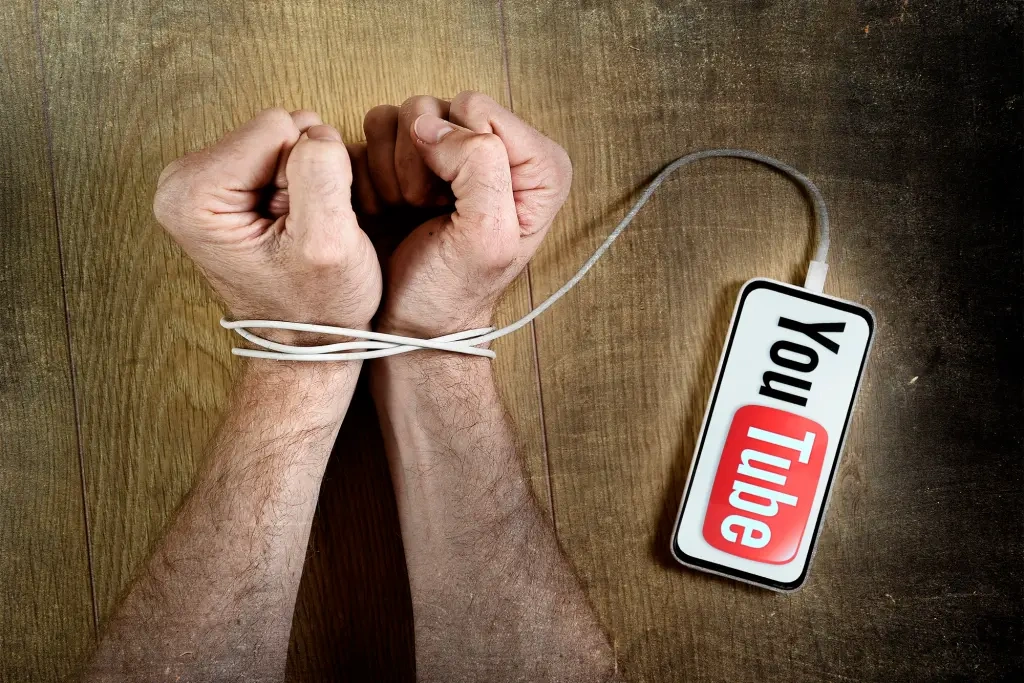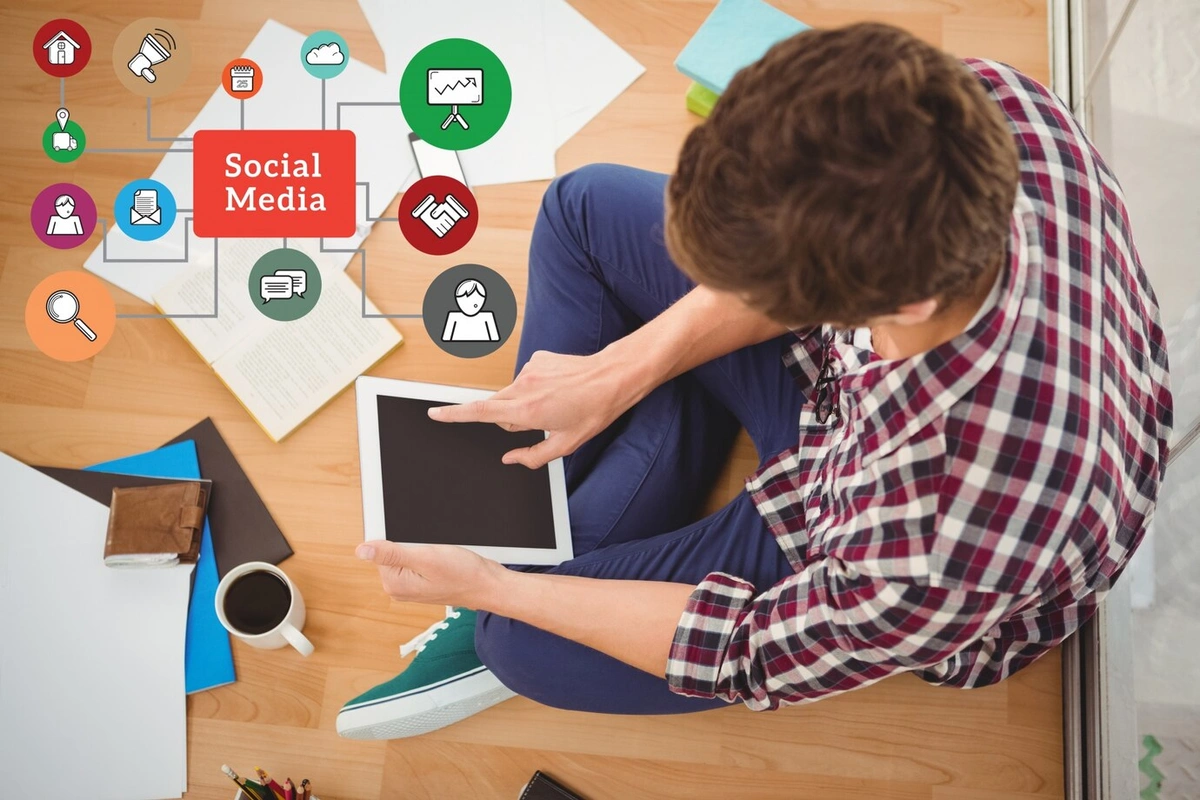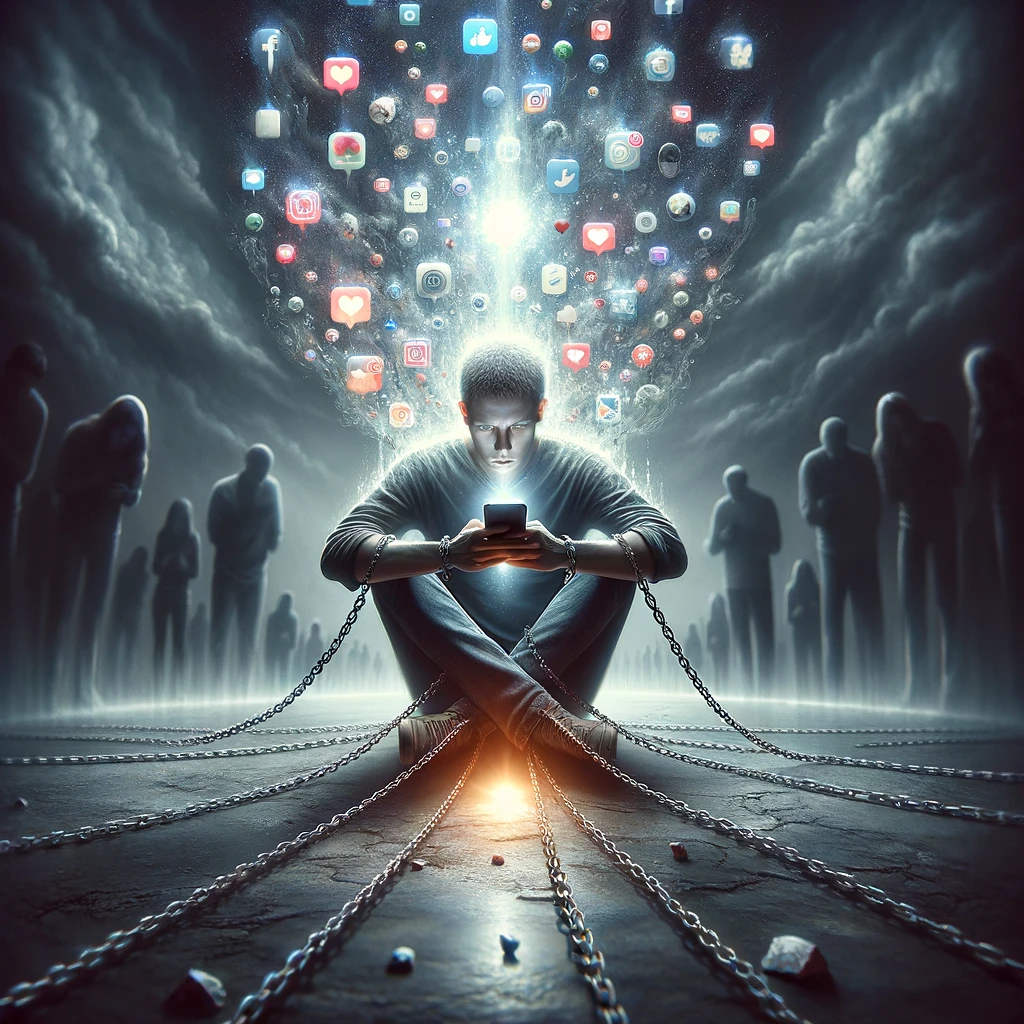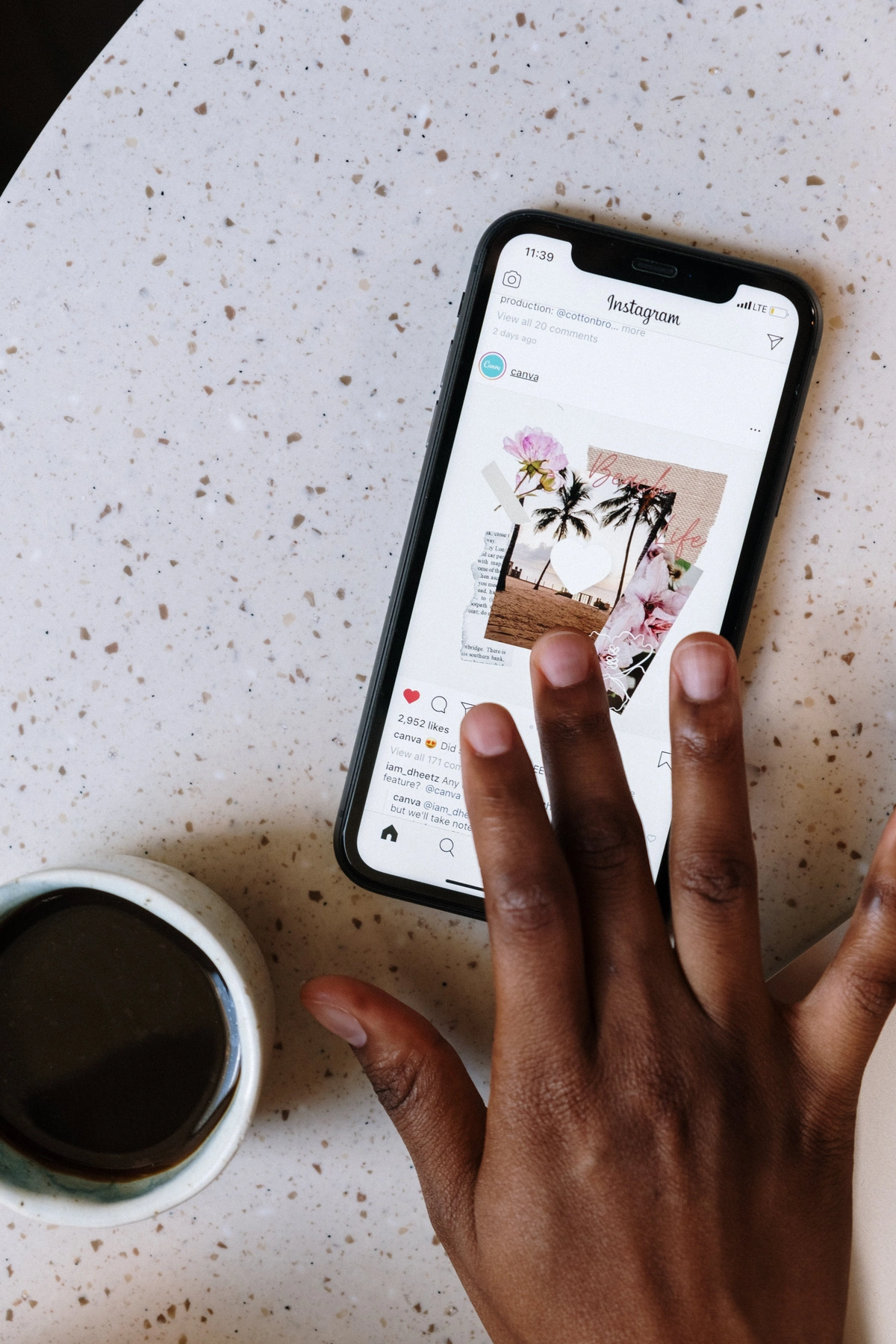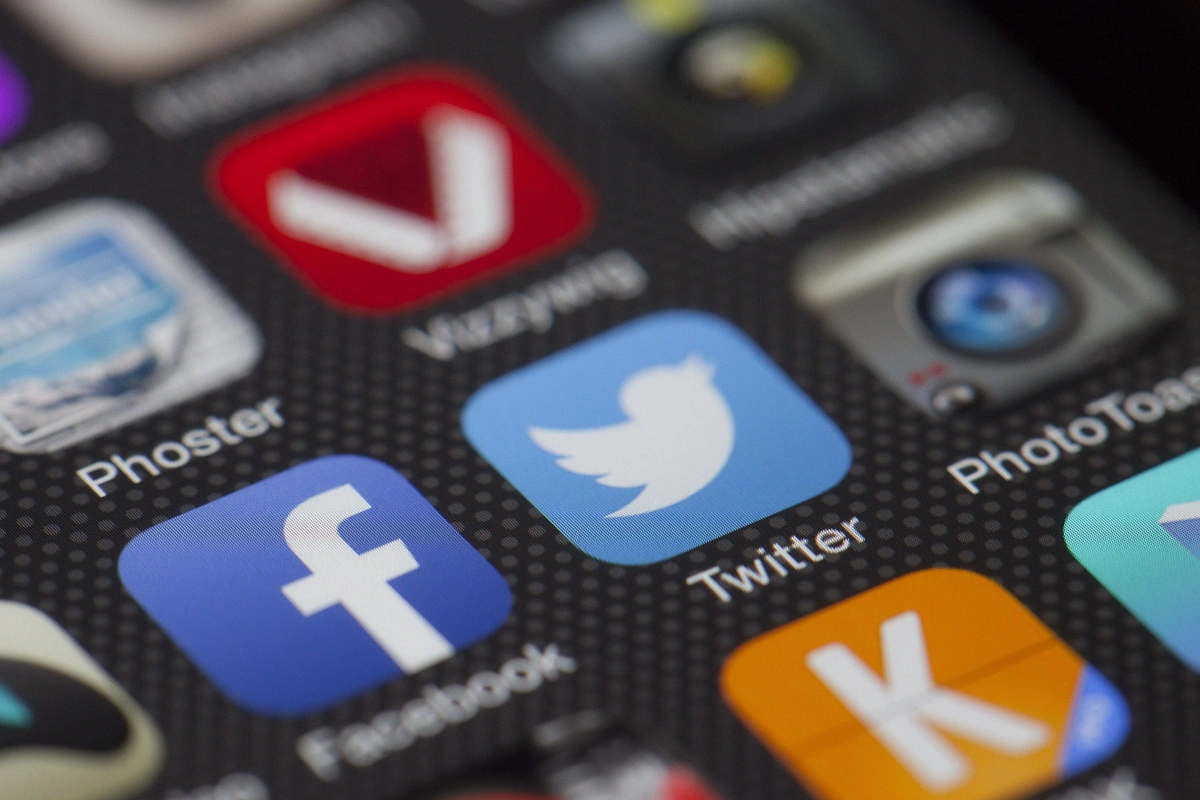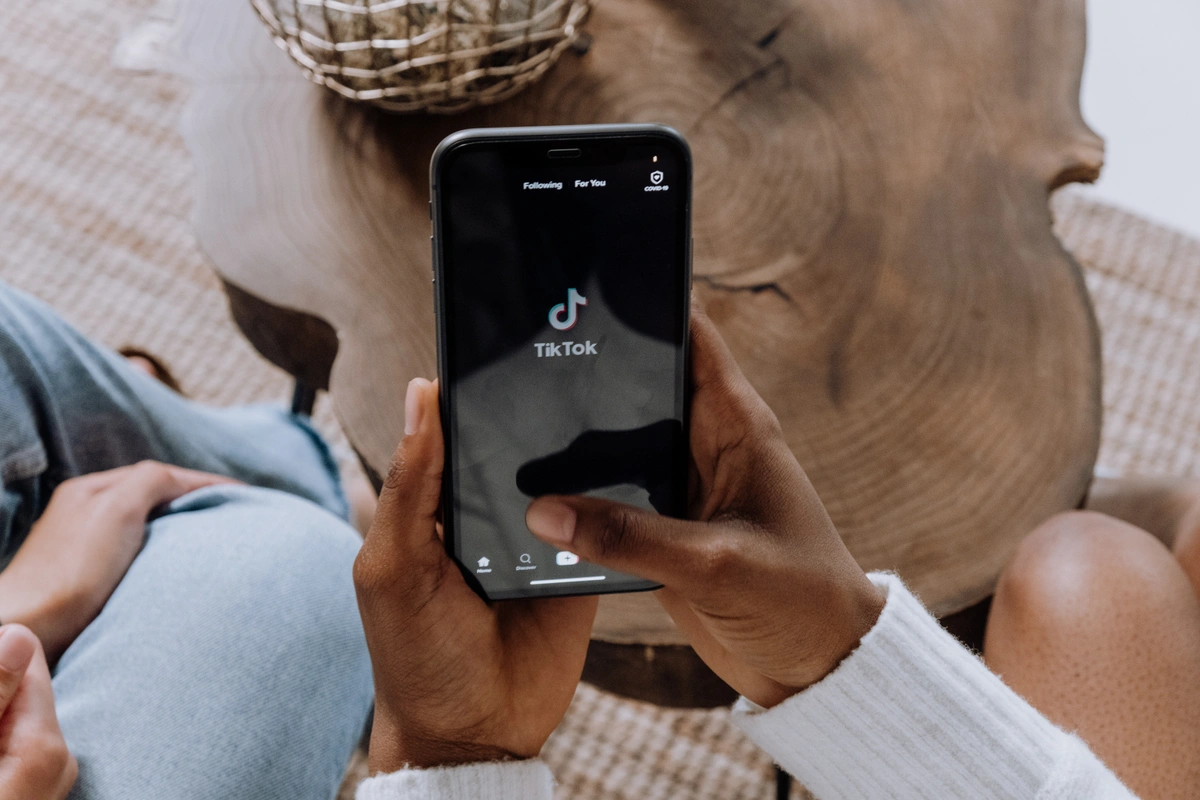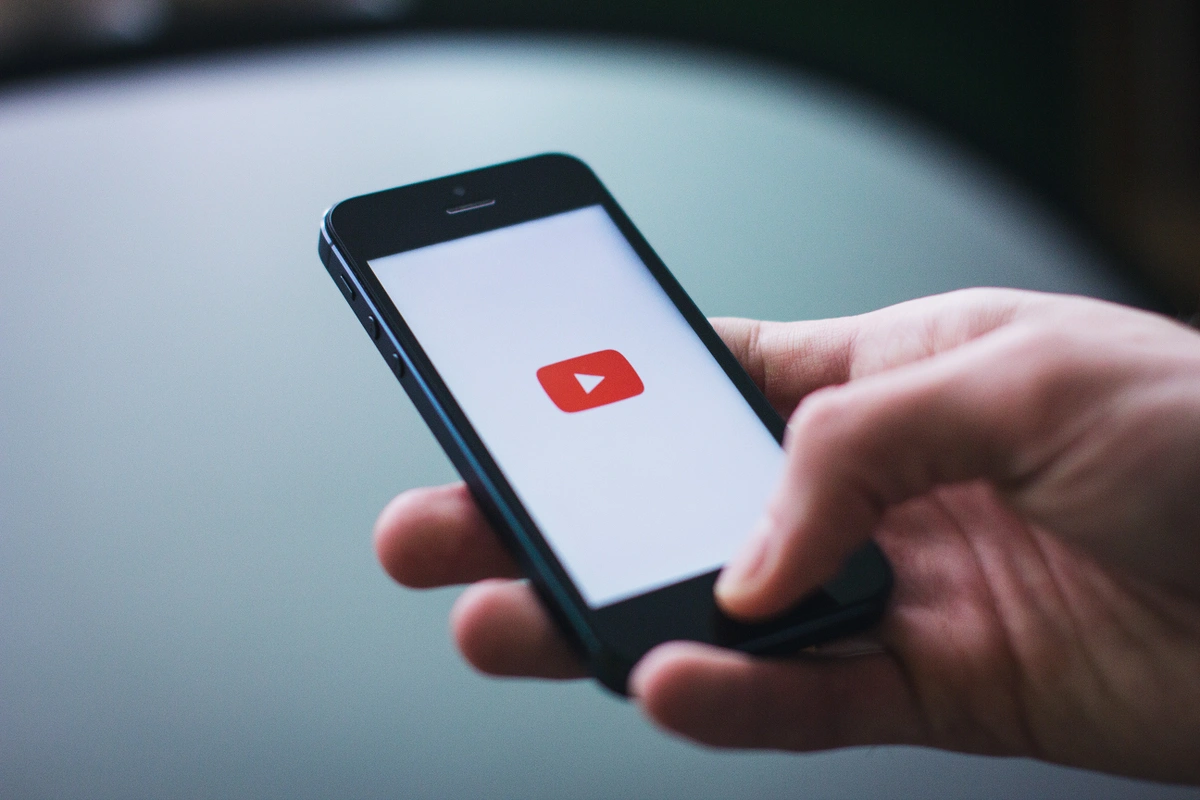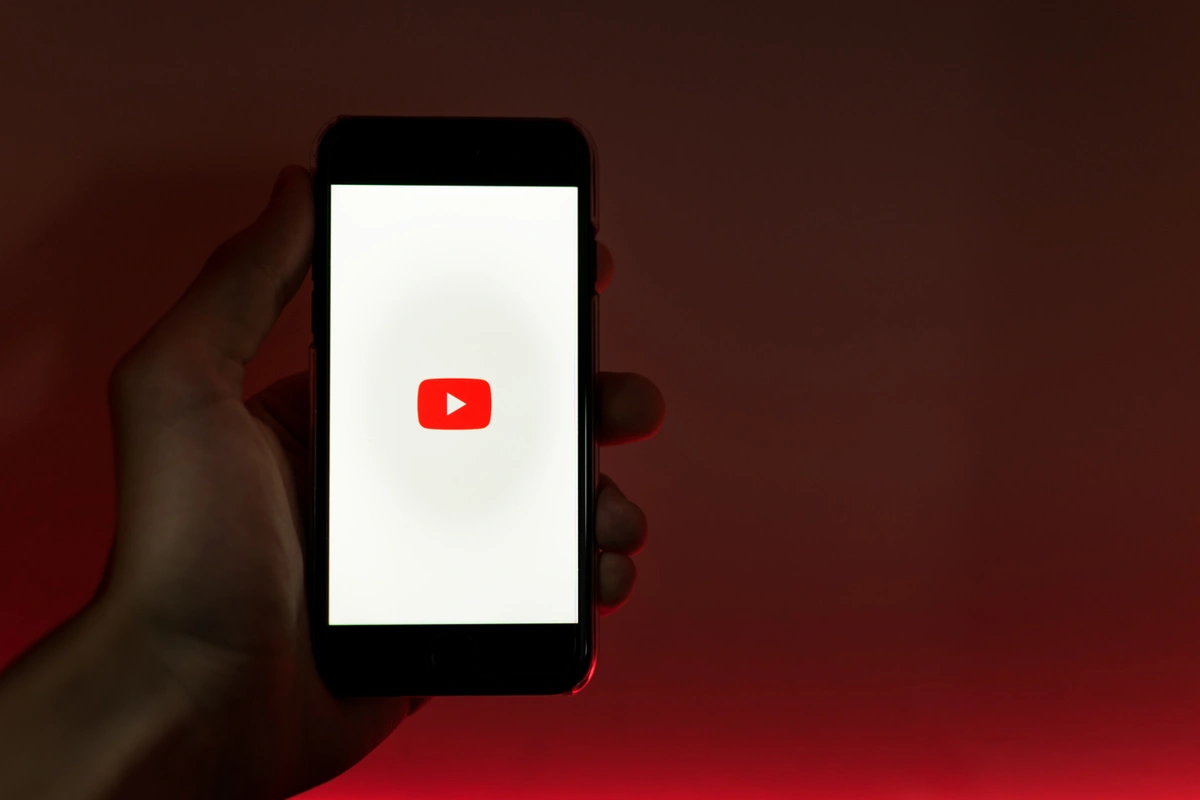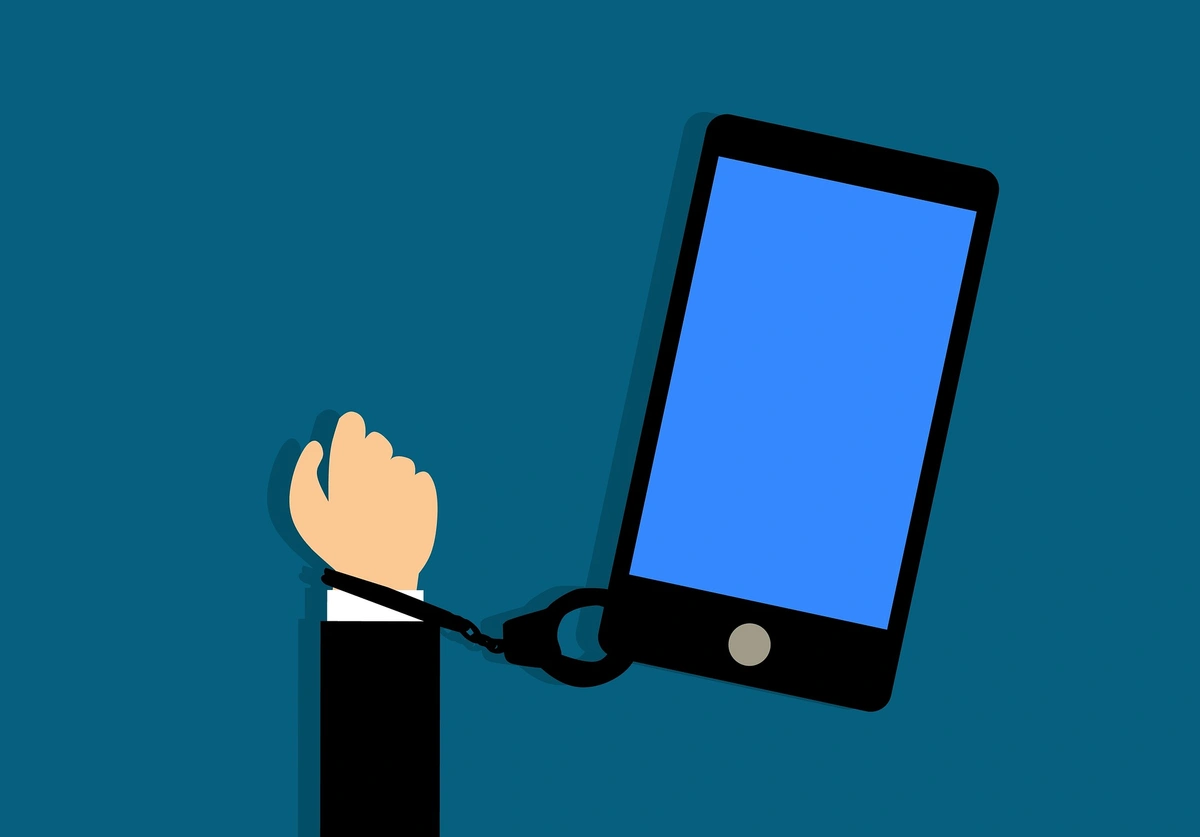Is Social Media Bad For My Teenagers? And What Can I Do About It?
Many parents struggle to get their teenagers off their mobile phones. It might be the declining grades, a change in mood, the Social Dilemma on Netflix, or hearing about the Facebook Whistleblower that’s motivating parents to take action towards a reduction in social media use.
Perhaps your teenage son or daughter has fallen victim to addictive social media use, and you’re not sure what to do next. Here are 5 things you need to know to help your son or daughter reduce social media consumption.
At BeTimeful, we try to provide the most accurate viewpoints of the situation to better help parents, students, professionals, and businesses manage problematic social media use. More importantly, we’re building a tool that is helping us do so, so check out BeTimeful and help your son or daughter reduce social media consumption.
Psychologists and social scientists have been studying this Social dilemma for many years. And blocking porn on their iPad is not enough. Here is what they agree on:
1. Stop Trying To Get Teens Away From Their Social Media
One of the most important points that social psychologists agree on is that social media is an integral part of your teen's social life. Teens use social media to stay connected with their friends and support groups. They also use social media for self-expression and entertainment. Yes, there are also many negative consequences that we should be aware of, and we’ll discuss those later on. Right now, let’s get a better understanding of why social media is so important for teens.
In a study on social media, Best et al. surveyed 527 participants aged 14-16 to see the effects of social media on teenagers. The results show that young men who reported messaging online friends about personal problems showed statistically significantly higher levels of mental well-being.
Therefore, cutting your children from social media may make things worse.
Instead, here are some better solutions to deal with social media:
First, use BeTimeful to block your teens’ News Feed while allowing them to continue staying connected with their friends and support circle. Second, acknowledge that the interplay between mental health and social media is complex. This will allow you to look at the situation with a bit more compassion and use this opportunity to learn about improper social media use and identify when your child is struggling
2. Identify Improper Or Problematic Social Media Use
Discussing the importance of mental health with your child is a necessary step when dealing with social media use. This is a tricky subject, I get it. But with the help of the latest psychological research and definitions, we guarantee that you and your teen will become more cognizant of negative emotions and how to deal with them.
Identifying problematic social media use: Unfortunately, since each person is different, it is hard to say if social media use becomes problematic at 2, 3, 4, 5 hours per day. However, psychologists have some techniques to determine whether an activity is problematic or not.
Problematic Social media use: when someone devotes energy, time, and attention to social media to the point that it impairs other social activities such as education, occupation, relationships, and mainly mental health and well-being.
Signs of problematic Social media use: So ask yourself, is my teen’s social media use affecting their education? The answer is most likely, ‘Yes.’ Additional signs of problematic social media use are behaviors such as salience, tolerance, mood modification, conflict, withdrawal, problems, and relapse (Andreassen, 2015).
Lastly, symptoms of pathological social media use include: being unable to withdraw from social media, and having negative feelings from withdrawal (Holmgren & Coyne, 2017).
Solutions to problematic Social media use: One way to fix this is by using BeTimeful to get rid of their News Feed so they can stay focused. Most solutions like Website blockers don’t work because they prevent teens from accessing their friend groups, resulting in them feeling isolated and struggling to stay focused.
3. Keep An Eye On Signs Of Negative Mental Health
Social Media addiction leads to negative mental health problems by creating an escape or control mechanism. Social media addicts use social media as a form of escapism to escape from negative feelings of discomfort or stress, which leads to disconnection from their true feelings. This disconnection leads to depression, anxiety, poor self-esteem, body dissatisfaction, and an overall decrease in well-being (Andreassen, 2015). Psychologists recognize that these 5 different mental health issues accompany addictive social media use.
Here are some definitions to help you better understand these mental health issues:
Depression: is a clinical disorder and is a significant medical condition characterized by mood dysfunction. Depression causes persistent feelings of sadness and loss of interest that can interfere with your daily functioning. It can also lead to a profound sense of despair (Torres, 2020).
Anxiety: is characterized by feelings of tension, intrusive worried thoughts, and physical changes like increased blood pressure. SNS(Social Networking Site) addicts try to limit anxiety by avoiding situations that may make them feel nervous or anxious. (Parekh, 2017).
Self-esteem: is used to describe a person's sense of personal worth (Cherry, 2019). Social media addiction affects one's self-esteem by impacting how one values or appreciates themselves.
Body dissatisfaction: since most of the content on social media is modified and teens spend the majority of their free time engaging in social comparison, many teens struggle with body dissatisfaction (Badillo, 2019). Badillo in her study finds that upward comparisons can lead to body dissatisfaction and eating pathologies.
In a Facebook study leaked by Frances Haugen, one survey found that 13.5% of U.K teen girls say their suicidal thoughts became more frequent after starting on Instagram. Another leaked study found that 17% of teen girls say their eating disorders got worse after using Instagram. Additionally, About 32% of teen girls said that when they felt bad about their bodies, Instagram made them feel worse, which Facebook's researchers found, and the Journal reported.
4. Use This Opportunity To Educate Yourself And Your Teen On ‘Upward Comparison’
Use this opportunity to teach an important lesson to your teen about comparing themselves to others on social media, and you’ll have a more resilient teen son or daughter.
At the core, social media is not evil. However, there is harm in the “upward comparison” that we unconsciously and consciously engage in while scrolling through the News Feed. Upward comparison is looking at people who are doing ‘better than you,’ while ‘downward comparison’ is comparing yourself to people who are doing worse than you.
Most of the posts on social media are edited and curated, leading to excessive upward comparison which causes negative feelings/emotions and leads to negative mental health consequences.
Since teens’ self-esteem is not cemented yet, and the majority of the News Feed is a highlight reel of short, idealized videos, these problems of upward and downward comparisons are exacerbated. Add the cruel nature of teenage behavior, cyberbullying, and you have a recipe for a disaster.
Therefore, it’s super important to educate your teen son or daughter on how to stop comparing themselves to what they see on social media.
Explain to them that most of the posts are highlight reels of popular idealized videos that do not reflect reality. Furthermore, comparing yourself to others only leads to more negative feelings. Therefore, as hard as it might be, try to focus on yourself and do things that make you happy instead of trying to be better than someone else.
5. How BeTimeful Can Help
At BeTimeful, we understand that social media can be both helpful and harmful, so we created BeTimeful as a tool to use the benefits of social media without the damaging effects. BeTimeful will allow your teen to keep connected with their friends and support system without getting distracted or harmed by the continuous New Feed. So check out BeTimeful and help your son or daughter reduce social media consumption.
BeTimeful makes sure you don't hooked into scrolling for hours. With BeTimeful, you don't need to delete social media apps or use any blocker. Here is how it works:
✅ BeTimeful hides all your distracting social media apps from your iPhone or Android 🔒
✅ You can have timed access to the distracting apps (scroll for 1, 5, 10 or more on your favourite App) 🕝
✅ Have unlimited access to feedless Instagram and YouTube!
✅ Access DM's without getting distracted 🤝
✅ Message your friends, prospects, and clients 📩
✅ Post videos, Reels, and all your content 📲
🔥 You can finally stay connected, productive, and NOT distracted with BeTimeful!
To summarize the points above:
- Don’t try to get rid of social media
- Identify improper and problematic social media use
- Keep an eye out for mental health issues
- Educate your teen on Upward Social Comparison
- Use BeTimeful to help balance your teens’ social media use with their mental health
Another step that can help here is a digital detox via practicing digital minimalism. Getting digital devices out of your house is important to reduce the overwhelming affect of digital devices.
Lastly, sometimes your teen may just want their Instagram feed removed or Youtube shorts removed so that they can stay connected/educated, just not distracted. If so, checkout how to remove YouTube shorts or how to remove Instagram feed. Even better, if you're a real estate agent looking to double your sales this year by using the right apps, checkout Top 5 Apps for Realtors to Drive Sales in 2023
Sources:
Badillo, K. (2019). Experimental effects of social media on body dissatisfaction and eating pathology: Upward versus downward comparisons (Order No. 22587280). Available from ProQuest Dissertations & Theses Global. (2303232263). Retrieved from http://ezproxy.library.yorku.ca/login?url=https://www-proquest-com.ezproxy.library.yorku.ca/dissertations-theses/experimental-effects-social-media-on-body/docview/2303232263/se-2?accountid=15182
Holmgren, H. G., & Coyne, S. M. (2017). Can’t stop scrolling!: pathological use of social networking sites in emerging adulthood. Addiction Research & Theory, 25(5), 375–382. https://doi.org/10.1080/16066359.2017.1294164
Andreassen, C. S. (2015). Online Social Network Site Addiction: A Comprehensive Review. Current Addiction Reports 2, 175–184. https://doi.org/10.1007/s40429-015-0056-9
Torres, F. (2020). What is depression? https://www.psychiatry.org/patients-families/depression/what-is-depression.
Parekh, R. (2017). What Are Anxiety Disorders? https://www.psychiatry.org/patients-families/anxiety-disorders/what-are-anxiety-disorders.
Cherry, K. (2019, August 14). 8 Basic Psychology Facts You Should Know. Verywell Mind. https://www.verywellmind.com/psychology-basics-4157186.
Allyn, B. (2021, October 6). Here are 4 key points from the Facebook whistleblower's testimony on Capitol Hill. NPR. Retrieved May 2, 2022, from https://www.npr.org/2021/10/05/1043377310/facebook-whistleblower-frances-haugen-congress





